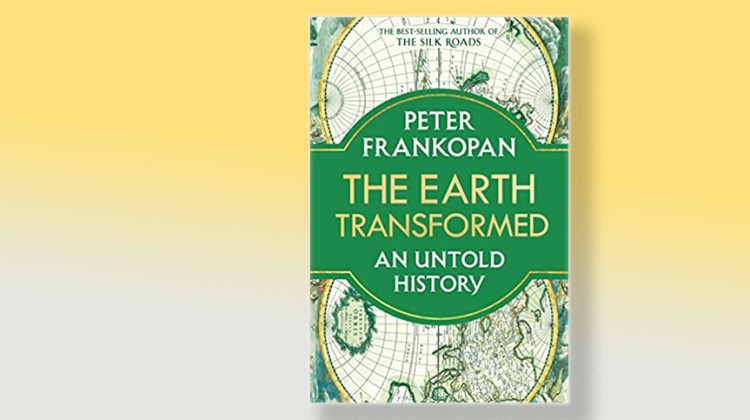
In his new book, The Earth Transformed: An Untold History, Peter Frankopan examines the consequences of interaction between humans and the natural world over the course of millennia. He shows how the trajectory of history has been influenced by such environmental factors as heat waves, droughts, wildfires, floods and volcanic eruptions.
 Climate change played an important part in some of the most dramatic developments in world history, including the collapse of the Mayan and Roman empires. Frankopan warns, however, against attributing the outcome of complex events to any single cause, and stresses that the way people respond to shifts in the environment is one piece of the puzzle.
Climate change played an important part in some of the most dramatic developments in world history, including the collapse of the Mayan and Roman empires. Frankopan warns, however, against attributing the outcome of complex events to any single cause, and stresses that the way people respond to shifts in the environment is one piece of the puzzle.
The Oxford University historian’s 700-page survey and analysis (with 200 additional pages of endnotes available online) of the interplay between man and nature provides needed context for the current debate about climate change. While there may be room for disagreement about what measures need to be taken to mitigate the damage that global warming is now inflicting on society, there can be no doubt about the increasing severity of the problem.
The most recent assessment by the United Nations’ Intergovernmental Panel on Climate Change (IPCC) concludes that the drive to meet the goal of limiting global warming to 1.5 degrees celsius over pre-industrial levels, which was established by the 196 nations that in 2016 signed the Paris Agreement, is faltering. The IPCC says that more than a century’s use of fossil fuels has already caused warming of 1.1 degrees C, and that current efforts to address the problem are inadequate.
Time is running short, but all is not lost. Effective means are available for cutting greenhouse gas emissions, as well as adapting to the destruction already caused by climate change, according to the report. “If we act now, we can still secure a livable, sustainable future for all,” says IPCC chairman Hoesung Lee.
The report should serve as a salutary reminder for mass market retailers and CPG manufacturers about what’s at stake, and the urgent need to redouble efforts to reduce their carbon footprint. Viewed from a business perspective, extreme weather and damage to ecosystems caused by global warming can jeopardize stores, warehouses and other infrastructure; disrupt transportation networks; and limit access to raw materials. The list goes on. Impacts on people — employees and customers alike — can be equally consequential.
Frankopan’s history demonstrates the kind of havoc that natural phenomena sometimes cause. The time for retailers, suppliers and other businesses to act to help forestall new climate-related disasters is now.




You must be logged in to post a comment Login